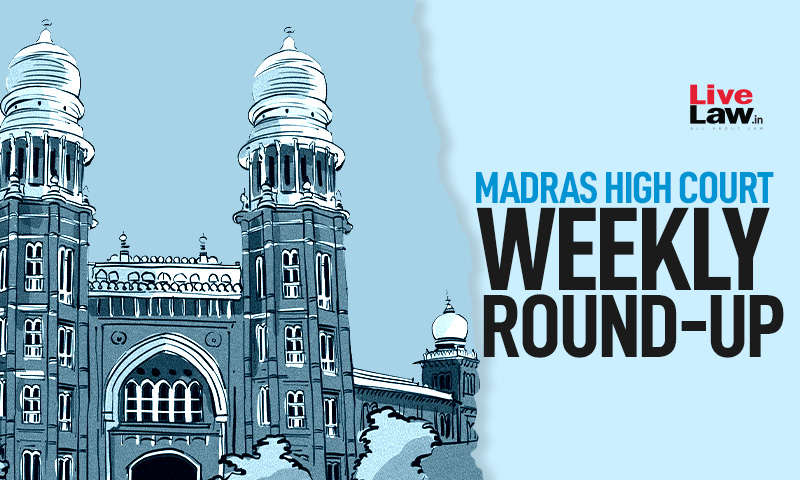Madras High Court Weekly Round-Up: January 31, 2022 To February 6, 2022
Sebin James
6 Feb 2022 8:25 PM IST

Next Story
6 Feb 2022 8:25 PM IST
A weekly round-up of important cases from Madras High Court and its subordinate courts.1. 'Investigation Not On Right Lines, Conversion Attempt Not Improbable' : Madras High Court Orders CBI Probe Into Thanjavur Girl's Suicide [Read Judgment]Case Title: Muruganantham v. The Director-General of Police & Ors.Citation: 2022 LiveLaw (Mad) 38Harshly criticising the investigation by the Tamil...
